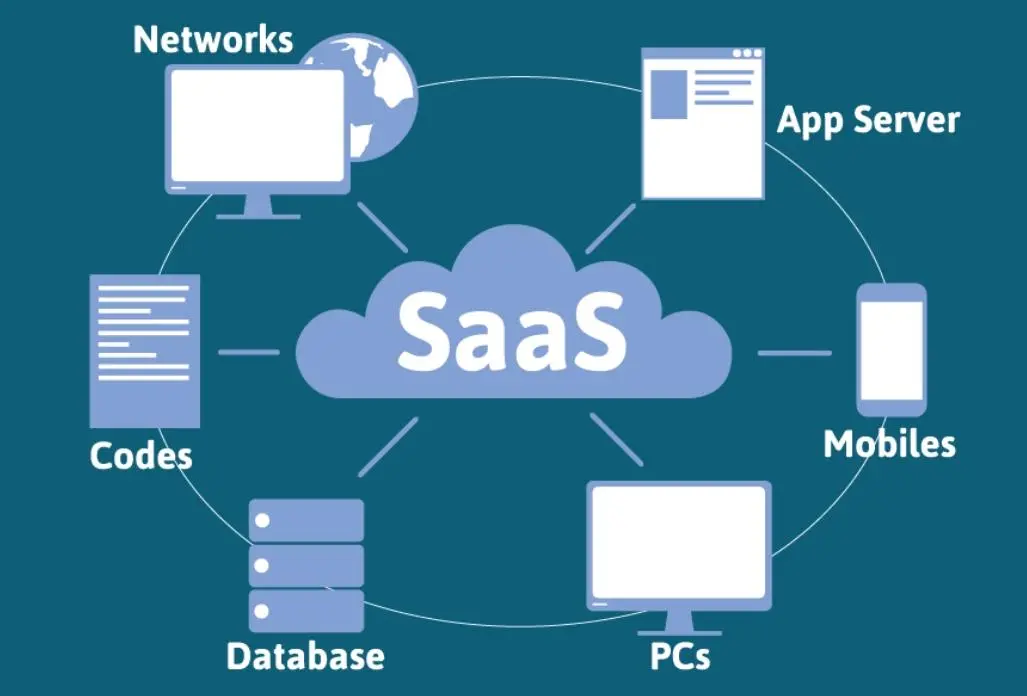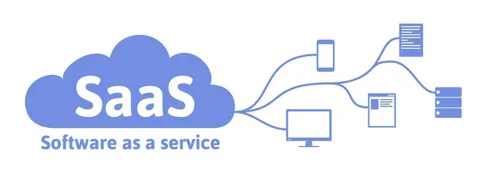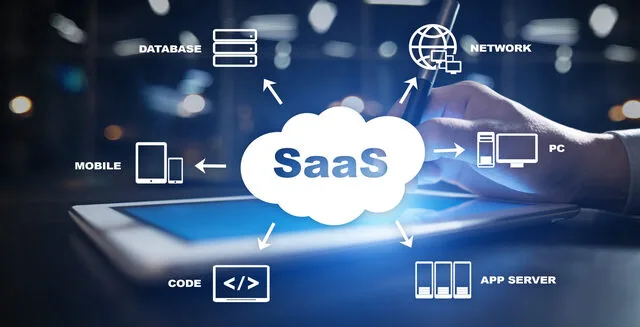In today's digital age, businesses are constantly seeking innovative solutions to streamline their operations and enhance productivity. One of the most significant advancements in this quest is the rise of Software as a Service (SaaS). In this blog, we will dive deep into what SaaS is, its importance in the modern business landscape, and how the On Wave Group is leveraging this technology to empower organizations. Whether you're a business owner looking to adopt new technologies or simply curious about SaaS, this comprehensive guide will provide you with valuable insights.
What is SaaS?
SaaS, or Software as a Service, is a cloud-based software delivery model that allows users to access applications over the Internet instead of installing and maintaining software on individual computers. With SaaS, software is hosted on remote servers and accessed through a web browser, providing users with flexibility, scalability, and ease of use.
Key Characteristics of SaaS:

1. Accessibility: Users can access SaaS applications from any device with an internet connection, allowing for seamless collaboration and remote work.
2. Subscription-Based: Most SaaS products operate on a subscription model, meaning businesses pay a recurring fee instead of a one-time purchase. This makes budgeting more manageable.
3. Automatic Updates: SaaS providers handle maintenance and updates, ensuring that users always have access to the latest features and security patches without any additional effort.
4. Scalability: As a business grows, its software needs may change. SaaS allows companies to easily scale their usage up or down based on their requirements.
5. Collaboration: Many SaaS applications are designed to facilitate collaboration among teams, enabling real-time communication and file sharing.
Importance of SaaS in Modern Business
The importance of SaaS cannot be overstated, as it has transformed how businesses operate. Here are some key reasons why SaaS is essential in today's business landscape:

1. Cost-Effectiveness
Traditional software installations often require substantial upfront investments in licenses, hardware, and IT infrastructure. SaaS eliminates these barriers, allowing businesses to access advanced tools without the hefty price tag. With a predictable subscription fee, companies can allocate their budgets more effectively.
2. Flexibility and Scalability
In a fast-paced business environment, adaptability is crucial. SaaS solutions offer flexibility, allowing organizations to scale their software usage based on changing needs. Whether you're a startup or an established enterprise, SaaS can accommodate your growth trajectory.
3. Enhanced Collaboration
With remote work becoming more prevalent, SaaS applications have become essential for fostering collaboration among distributed teams. Real-time communication tools, project management software, and document-sharing platforms empower teams to work together seamlessly, regardless of physical location.
4. Increased Security
SaaS providers invest heavily in security measures to protect user data. With data breaches on the rise, businesses can benefit from the advanced security protocols that SaaS solutions offer, often surpassing what individual organizations could implement on their own.
5. Focus on Core Business
By outsourcing software management to SaaS providers, businesses can focus on their core competencies rather than getting bogged down by IT maintenance. This allows teams to dedicate more time to innovation and growth.
The On Wave Group: A SaaS Pioneer
The On Wave Group stands at the forefront of the SaaS revolution, providing cutting-edge solutions designed to empower businesses of all sizes. With a commitment to innovation and a customer-centric approach, On Wave Group offers a suite of SaaS applications that cater to various industries.
Key Offerings of On Wave Group:

1. Project Management Software: Streamline project workflows, enhance team collaboration, and monitor progress with intuitive project management tools.
2. Customer Relationship Management (CRM): Build and maintain strong customer relationships with powerful CRM software that provides valuable insights and analytics.
3. Accounting and Finance Solutions: Simplify financial processes, track expenses, and generate reports with user-friendly accounting software.
4. Human Resource Management: Manage employee records, payroll, and performance evaluations seamlessly with comprehensive HR software.
5. Marketing Automation: Enhance marketing efforts with automation tools that enable targeted campaigns and lead generation.
As businesses navigate the complexities of the modern landscape, leveraging innovative technologies like SaaS is paramount. The On Wave Group is committed to helping organizations harness the power of SaaS, offering solutions that drive efficiency, collaboration, and growth. By understanding what SaaS is and the importance it holds, businesses can make informed decisions that propel them forward in an increasingly competitive environment.
Ready to transform your business with the power of SaaS? Explore the innovative solutions offered by the On Wave Group today! Visit our website to learn more about our products and how we can help you achieve your business goals.
FaQ

1. What is the difference between SaaS and traditional software?
Traditional software requires installation on individual devices and often involves significant upfront costs. SaaS, on the other hand, is hosted in the cloud and accessed via the internet, typically on a subscription basis, making it more flexible and cost-effective.
2. Is SaaS secure?
Yes, reputable SaaS providers prioritize security and often implement advanced measures to protect user data. It's essential to choose a provider with a strong security track record and transparent policies.
3. Can I customize SaaS applications to fit my business needs?
Many SaaS providers offer customization options, allowing businesses to tailor the software to their specific requirements. However, the extent of customization may vary by provider.
4. How does billing work for SaaS?
SaaS products typically operate on a subscription model, with billing occurring monthly or annually. Some providers may offer tiered pricing based on usage or features.
5. Can I access SaaS applications offline?
Most SaaS applications require an internet connection for access. However, some providers offer limited offline functionality, allowing users to work without an internet connection and sync changes later.
Choose systems that are interoperable and fit your needs as a business first. Examine aspects including each system's unique features, ease of integration, and scalability.

Plan Your Integration Strategy
Create a thorough integration strategy that specifies the objectives, schedules, and materials needed for the integration procedure. A roadmap for every step of the integration should be included in this plan, along with a list of probable problems and their fixes.
Leverage APIs
To enable smooth system communication, make use of APIs. Make sure the systems you've selected offer strong API support and that the people on your team are qualified to set up and oversee these integrations.
Test Thoroughly
To make sure that all systems are correctly integrated and that data moves between them without any problems, thoroughly test the system. Testing minimizes interruptions to your business by helping to find and fix any problems before the integration goes live.
Monitor and Optimize
After integration is finished, keep an eye on your integrated systems' performance at all times. Review customer input, system performance, and data accuracy regularly to find areas for improvement and adjust your operations.
Conclusion
In conclusion, you can completely change the way your organization operates by grasping the concept of eCommerce integration and putting it into practice. eCommerce integration has many advantages, including increased productivity, better inventory control, better customer service, expedited order processing, and data-driven insights. It's crucial to be mindful of potential roadblocks, too, such as compatibility problems, large upfront expenditures, technological complexity, and worries about data security. Check out our blog post, "What Is E-commerce Website Development? A Complete Guide (2024)" if you're prepared to launch your e-commerce venture.

